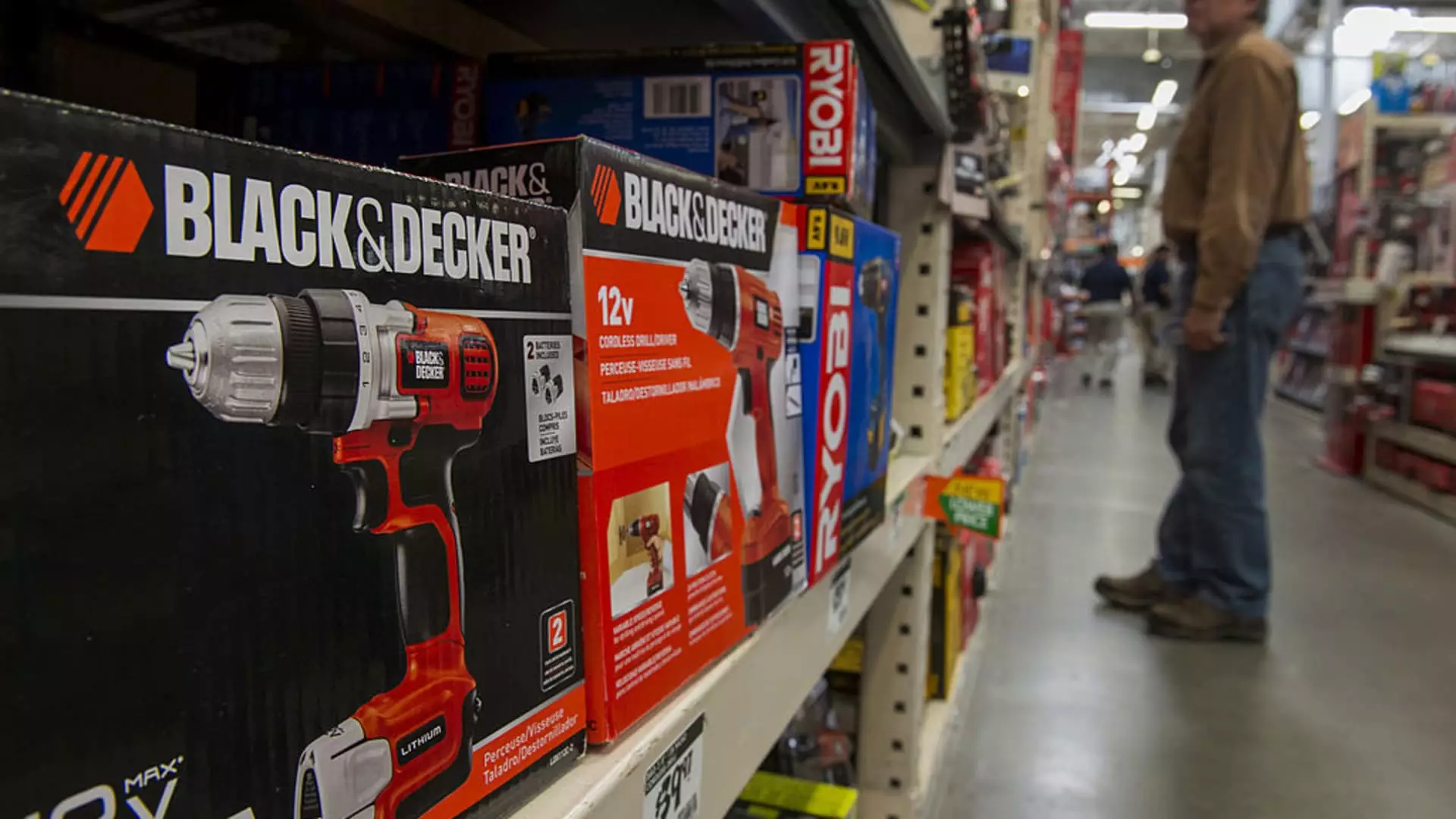Stanley Black & Decker recently experienced a significant drop in stock value, with shares plummeting nearly 12% following the company’s quarterly earnings report. The reaction from the market suggests that investor sentiment is deeply affected by short-term performance, which can lead to skewed perceptions of a company’s long-term potential. Notably, investor confidence may have waned due to lower-than-expected revenues and fourth-quarter forecasts that fell short of Wall Street estimates. However, financial analysts, including Jim Cramer, argue that this sharp decline was disproportionate and unwarranted given the underlying fundamentals of the company.
Jim Cramer emphasized that rather than being a signal for panic, the earnings report should be viewed through a more nuanced lens. He pointed out that the management’s commentary during the conference call indicated that while they were not satisfied with their current numbers, external economic factors heavily impacted consumer purchasing behaviors. Specifically, potential buyers are likely holding back on equipment such as DeWalt and Stanley Black & Decker tools until they feel more optimistic about their investments in real estate. This represents a cyclical behavior that many investors often overlook when reacting to headline news.
What many investors may miss in this scenario is the broader economic context. Cramer highlighted that a key driver for Stanley Black & Decker’s future performance lies in the Federal Reserve’s monetary policy. As the central bank potentially moves towards lowering interest rates, we could see an uptick in housing market activity, which historically correlates with increased demand for home improvement tools. Economic cycles in the housing market often dictate tool sales as consumers become more willing to invest in home improvement projects when borrowing costs decrease.
Investors are encouraged to reassess Stanley Black & Decker in light of these factors, rather than simply reacting to quarterly earnings. Buying during a downturn when valuations may become artificially low can often yield positive long-term results. Cramer insists that the company remains a strong candidate for investment based on its foundational business and future growth prospects that are likely to benefit from favorable economic conditions. Therefore, for those considering entering or increasing their position in Stanley Black & Decker, this moment could represent a buying opportunity rather than a cause for alarm.
While the recent drop in Stanley Black & Decker’s stock might incite concern among investors, it is crucial to analyze the situation with a long-term perspective. Cramer’s insights suggest that this stock has the potential to rebound as economic conditions improve. Given the fundamentals and potential catalysts on the horizon, those willing to look past short-term volatility may find themselves positioned favorably in the future. Thus, instead of hastily reacting to market fluctuations, taking a measured approach could present one of the best opportunities for investment in a seemingly chaotic environment.

